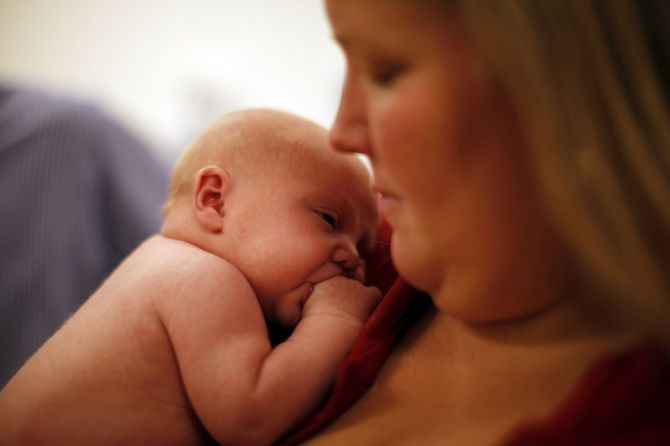Part Man, All Woman: Scientists Find Male DNA in Women's Brains

It's said that, after becoming a mother, your children never really leave you. Even after they begin to walk, attend school and move out, mothers think and worry about their children almost incessantly. New research published recently has found that is true in more ways than one. Apparently, mothers carry the DNA of their sons in their brains for long after their children have evacuated the uterus. The appearance of the DNA can also exist if women once shared the womb with their brothers.
The study looked at the brains of 59 women who had passed away. They found in a whopping 63 percent of their brains fetal DNA that could only have come from a male. Though DNA was scattered around different portions of the brain, the majority of it was concentrated in the hippocampus, which consolidates memories, and in the parietal and temporal lobes of the prefrontal cortex, areas that affect things like sensation, perception and the comprehension of language.
This is not the first time that fetal DNA has been found in mothers, but most of the time the process, called 'fetal microchimerism', was thought to bleed past the placenta and concentrate in tissues like blood and organs. This was the first time a study looked at the effect that babies' DNA could have on women's brains.
DNA is commonly thought of as a one-way street. Our parents' DNA combines and twists to create a whole new person. But the study, published by researchers from the University of Washington and the Fred Hutchinson Cancer Research Center, both in Seattle, has made it clear that that belief is not quite true. Mothers receive DNA from their children and, perhaps even more surprisingly, fetuses in-utero receive DNA from fraternal twins and from fetuses that had left their previous marks on the womb.
Researchers are unsure about what this discovery might mean. They believe that the remaining fetal DNA may make women either less or more vulnerable to various diseases. They also found that there was less evidence of microchimerism in women with Alzheimer's disease - surprising because research had suggested that Alzheimer's disease was more prevalent in women who had more children. Further research will study whether women who have been pregnant with a male fetus have a greater or reduced risk of Alzheimer's disease or auto-immune diseases like multiple sclerosis.
The study was published in PLoS One.



























